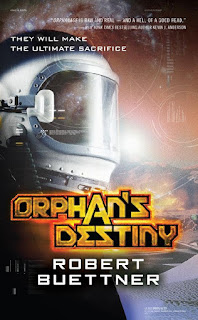2. Black as Night - Regina Doman
3. Airborn - Kenneth Oppel
4. Tunnels - Roderick Gordon & Brian Williams
5. The Spiderwick Chronicles - Holly Black and Tony DiTerlizzi
The Field Guide, The Seeing Stone, Lucinda's Secret, The Ironwood Tree and The Wrath of Mulgarath
6. A Long, Long Sleep - Anna Sheehan
7. Invasion - CHAOS Book 1 - Jon S. Lewis
8. Ghetto Cowboy - G. Neri and Jesse Joshua Watson
9. Jacob the Baker Trilogy - Noah benShea
Jacob the Baker, Jacob's Journey and Jacob's Ladder.
10. The Poison Eaters and Other Stories - Holly Black
(Note: Many of these were digital ARC's from NetGalley and reviews will be posted closer to the publication date. Some of the reviews are scheduled over the next few weeks. I will link to the reviews once they post.)
Relates Posts:
Top 10 Fiction Books 1st Quarter 2010
Top 10 Fiction Books 2nd Quarter 2010
Top 10 Reading Goals for 2010
Top 10 Fiction Books 3rd Quarter 2010
Top 10 Fiction Books 4th Quarter 2010
Top Ten Reading Goals For 2010 - Recap
Top 10 Fiction Books 2010
Top 10 Picture Books of 2010
Top 10 Non-Fiction Books of 2010
Top 10 Graphic Novels for 2010
Top Ten Reading Goals For 2011
Top Ten Fiction Books 1st Quarter 2011
Top Ten Fiction Books 2nd Quarter 2011
Top Ten Reading Goals for 2011 Update
Top Ten Fiction Books 3rd Quarter 2011
Top Ten Fictions Books 4th Quarter 2011
Top Ten Fiction Books 2011
Top Ten Reading Goals 2011 - Recap
Top Ten Reading Goals 2012
Top Ten Fiction Books 1st Quarter 2012
Top Ten Fiction Books 2nd Quarter 2012
Top Ten Fiction Books 3rd Quarter 2012
Top Ten Fiction Books 4th Quarter 2012
Top Ten Fiction Books 2012
Top Ten Non-Fiction Books 2012
Top Ten Reading Goals 2012 - Recap
Top Ten Reading Goals 2013
Top 10 Fiction Books 1st Quarter 2013
Top 10 Fiction Books 2nd Quarter 2013
Top 10 Books Second Half 2013
Top Ten Fiction Books 2013
Top Ten Non-Fiction Books 2013
Top Ten Books First Quarter 2014
Top Ten Books Second Quarter 2014
Top Ten Books Third Quarter 2014
Top Ten Books Fourth Quarter 2014
Top Ten Fiction Books 2014
Top Ten Non-Fiction Books 2014
Top Ten Books First Quarter 2015
Top Ten Books Second Quarter 2015
Top Ten Books Third Quarter 2015
All Top Ten Lists on Book Reviews and More
Statistics Books Read By Year:
32 - January-March 2011
302 - 2010
142 - 2009
98 - 2008
83 - 2007
191 - 2006
151 - 2005
60 - 2004
52 - 2003
97 - 2002
50 - 2001
41 - 2000
71 - 1999
73 - 1998
131 - 1997
101 - 1996




















